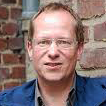“Any action against the pandemic should breathe the spirit of democracy”. Till van Rahden, visiting lecturer at the Albert Hirschman Centre on Democracy (the video of our latest event and interview with him can be found here), contributes to our series on democratic experiences in the coronavirus pandemic.
We are not only witnessing a medical emergency, but the COVID 19 pandemic is also testing our democratic way of life.
How we respond to this challenge is not merely an epidemiologic or academic question, but above all a political one. There is no end in sight to the crisis. We hear appeals from all sides and advice on what steps need to be taken. It remains to be seen whether these will lead us astray, or pave the way out of the crisis. Because we are living in a state of emergency, we should respond democratically to this pandemic. It is to be welcomed that the German Chancellor Angela Merkel in her television address on March 19. 2020, emphasized that she was speaking as the head of government of a "democracy" in which "we do not live from coercion, but from shared knowledge and participation". However, it is troubling that the German National Academy of Sciences in its statement of April 13. 2020 primarily recommends that the federal government "hold on to a market-based economic order", but only speaks of democracy in passing. We need scientifically necessary and economically useful measures, but they should also be politically prudent. The longer the state of exception continues, the greater the need for public controversies and discord. Any action against the pandemic should breathe the spirit of democracy.
Measures against the pandemic are exacerbating social inequality in our society. The paralysis of public life, the fact that we have closed the places and spaces of democratic encounter, hits the weakest in our society hardest: the homeless, the mentally ill, refugees and undocumented migrants, children who suffer from psychological and physical abuse. The fact that we can hardly leave our homes, that playgrounds and sports fields as well as libraries and museums are closed, affects a family with young children differently in a two-room apartment than in a house with a garden and table tennis table in the basement. Homeschooling does less damage to children in a household with three computers and one printer than where there is only a functioning smartphone and no quiet place to do schoolwork. Let us look for new ways of maintaining the “unsocial sociability” of all citizens despite the epidemiologically required distance. The more public spaces such as parks and sports fields, libraries and museums we make accessible, the more we can keep to the physical distance requirement. The longer these places are open, as are schools and shops, the easier we can get out of each others’ way. This is not just about jobs or the fate of the free market economy. Without the intersection of social circles, the vitality of democracy dries up.
Finally, the pandemic reminds us that health is also a public good. Democracy as a society of free and equal people is predicated on the idea of the common good. So let's strengthen the public health system and especially the municipal health departments that stand for it. Let us make sure that hospitals have enough staff and beds to be ready for the next crisis. Let us prioritize the development of vaccines against the viruses of today and tomorrow, even if the pharmaceutical industry earns comparatively little from them. Last but not least, with respect to the global South, we should consider vaccines as a common good instead of alllowing them to be patented. In the face of the pandemic, the logic of profit maximization is problematic and a threat to democracy even if it may be beneficial in other areas.
All of this costs money. Our freedom, our democratic constitutionalism and our democratic way of life do not come free of charge. The pandemic reminds us that personal responsibility and private initiative can only thrive if we mutually recognize each other as free and equal, which also means that all citizens in a democracy protect each other against existential risks.
This commentary has been written for the Democracy Centre’s series of commentaries on the effects of the novel coronavirus on democratic experiences around the globe, and the blog Coronavirus: How Will It Affect Our Lives? of the Institute for Human Sciences (IWM), Vienna.
 Till van Rahden is Professor of German and European Studies at the Université de Montréal. He specializes in European history since the Enlightenment and is interested in the tension between the elusive promise of democratic equality and the recurrent presence of differences and moral conflicts. He recently published Demokratie: Eine gefährdete Lebensform (Frankfurt/New York, 2019). His dissertation received the ‘Fraenkel Prize in Contemporary History’ and was published as Jews and other Germans: Civil Society, Religious Diversity and Urban Politics in Breslau, 1860-1925 (Madison, 2008). He is a visiting fellow at the Albert Hirschman Centre on Democracy of the Graduate Institute, Geneva.
Till van Rahden is Professor of German and European Studies at the Université de Montréal. He specializes in European history since the Enlightenment and is interested in the tension between the elusive promise of democratic equality and the recurrent presence of differences and moral conflicts. He recently published Demokratie: Eine gefährdete Lebensform (Frankfurt/New York, 2019). His dissertation received the ‘Fraenkel Prize in Contemporary History’ and was published as Jews and other Germans: Civil Society, Religious Diversity and Urban Politics in Breslau, 1860-1925 (Madison, 2008). He is a visiting fellow at the Albert Hirschman Centre on Democracy of the Graduate Institute, Geneva.


